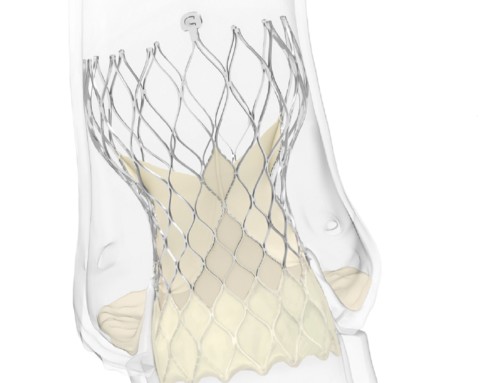
Late-breaking data presented at the American College of Cardiology together with World Congress of Cardiology Scientific Sessions (ACC.20/WCC) virtual meeting (28–30 March, Central Time) show that transcatheter aortic valve implantation (TAVI) with the Evolut device (Medtronic) in low-risk patients with bicuspid aortic valves is associated with low rates of all-cause mortality or stroke at 30 days (1.3%). Furthermore, the rate of serious procedural complications was low and there no annular rupture or aortic dissection.
According to a press release, results from the 150-patient, single-arm study showed excellent outcomes at 30 days, with a 95.3% device success rate and a low rate of serious procedural complications including no annular ruptures or aortic dissection. Additionally, results from the study showed:
- Low rate of all-cause mortality (0.7%)
- Low rate of disabling stroke (0.7%)
- Exceptional haemodynamics with low mean aortic valve gradients (7.6 ± 3.7mm Hg), and large effective orifice area (2.3 ± 0.7cm2)
- No incidence of moderate or severe paravalvular leak
- Low rate of major vascular complications (1.3%)
- High ue of the Evolut 34mm (41.6% of patients in the study were implanted with this larger valve size)
- New pacemaker rate (15.1%) was lower than in the Evolut Low Risk Trial
The press release reports that bicuspid aortic valve disease affects approximately 2% of the general population, adding that patients with bicuspid aortic valve stenosis are typically younger than those with tricuspid aortic valve stenosis (median age of 70 in the study). It notes that patients with bicuspid valves were typically excluded from prior TAVI because of concerns of asymmetric calcification, elliptical shape, potential incomplete valve expansion, procedural technical concerns and other risk factors.
However, in 2018, Medtronic received FDA approval for revised commercial labelling for the Evolut TAVI system that removed a precaution for the treatment of bicuspid severe aortic stenosis patients deemed at intermediate or greater risk for surgical aortic valve replacement. According to the press release, approximately 60% of the low-risk TAVI patient population have bicuspid aortic valves.
Pieter Kappetein, vice president, medical affairs for the Structural Heart business, which is part of the Cardiac and Vascular Group at Medtronic, comments: “Evidence continues to support the use of TAVI with the Evolut platform in groups of patients previously thought to be more challenging, or non-candidates for the procedures. In addition to reaffirming the Evolut valve’s exceptionally strong haemodynamics, these data indicate that low-risk bicuspid aortic stenosis patients implanted with TAVI do very well. We have observed the Evolut TAVI valve to be a suitable treatment option for many patients with bicuspid aortic valve disease at intermediate risk or higher, and these data are encouraging that we may see a similar outcome in low-risk patients.”
The Evolut TAVI system is not currently approved in any geography for use in patients with bicuspid aortic valve stenosis at low surgical risk.





